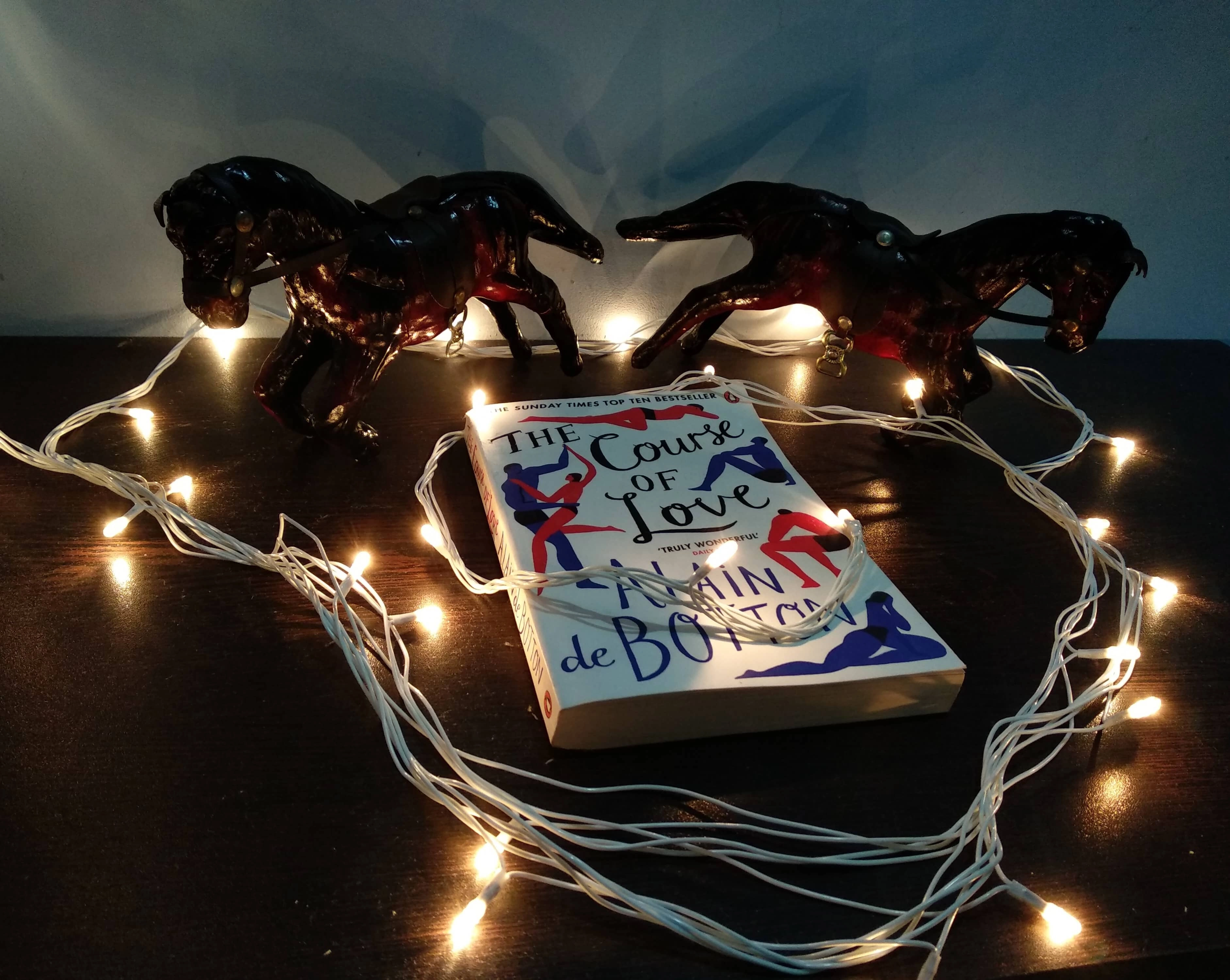
The School of Life - a massively popular YouTube channel - used to be this source of solace in some turbulent times of my college life. It is not something that you’d think would be cheerful and uplifting - a quick glance at some of the most popular videos of the channel would include titles such as “Why we go cold on our partners”, “Why you will marry the wrong person” etc. The honest yet straightforward mannger in which the narrator calmly tells us that even though it might feel like this is the worst possible time of your life, it is not usually so - it was a comforting thought - to feel and accept that things are fucked up and move on with quiet resignation.
Alain De Botton is the founder of the said channel as well as the author of this book.
The Course of Love is Alain’s critique of what’s wrong with the society’s current perspective of love and marriages. Romanticism - the idea that the briefest of glances of some stranger is the formulation of a satisfying relationship, the idea of soul-mates and the happily ever after - is one of the most mistakenly understood facets of life.
The story revolves around two fictional characters who meet each other at work, fall in love, get married, have children and go through the whole process of frustrations and resignations and disappointments that constitutes a married life. Through this fictional story, Alain gives us some of the most profound insights into how love and relationships work in real life - quite unlike how they happen in stories. He writes in one of the passages -
Our understanding of love has been hijacked and beguiled by its first distractingly moving elements. We have allowed our love stories to end way too early. We seem to know far too much about how love starts, and recklessly little about how it might continue.
It has its shortcomings though - sometimes Alain insights might appear to be delusional and bordering on self-righteousness, especially when he is commenting on one of the most controversial aspects of marriage - Adultery.
However, if you keep in mind that all these insights are a one man’s opinion and that you don’t have to take everything at face value, you’ll be able to take away many good things from this book. Give this one a read when you’re falling in love, revisit it when you’re getting married and visit again when you’re trapped in those inevitable frustrations of married life. I know I certainly will.
I will leave you with one of my favorite passages from the book -
At the heart of a sulk lies a confusing mixture of intense anger and an equally intense desire not to communicate what one is angry about. The sulker both desperately needs the other person to understand and yet remains utterly committed to doing nothing to help them do so. The very need to explain forms the kernel of the insult: if the partner requires an explanation, he or she is clearly not worthy of one. We should add: it is a privilege to be the recepient of a sulk; it means the other person respects and trusts us enough to think we should understand their unspoken hurt. It is one of the odder gifts of love.